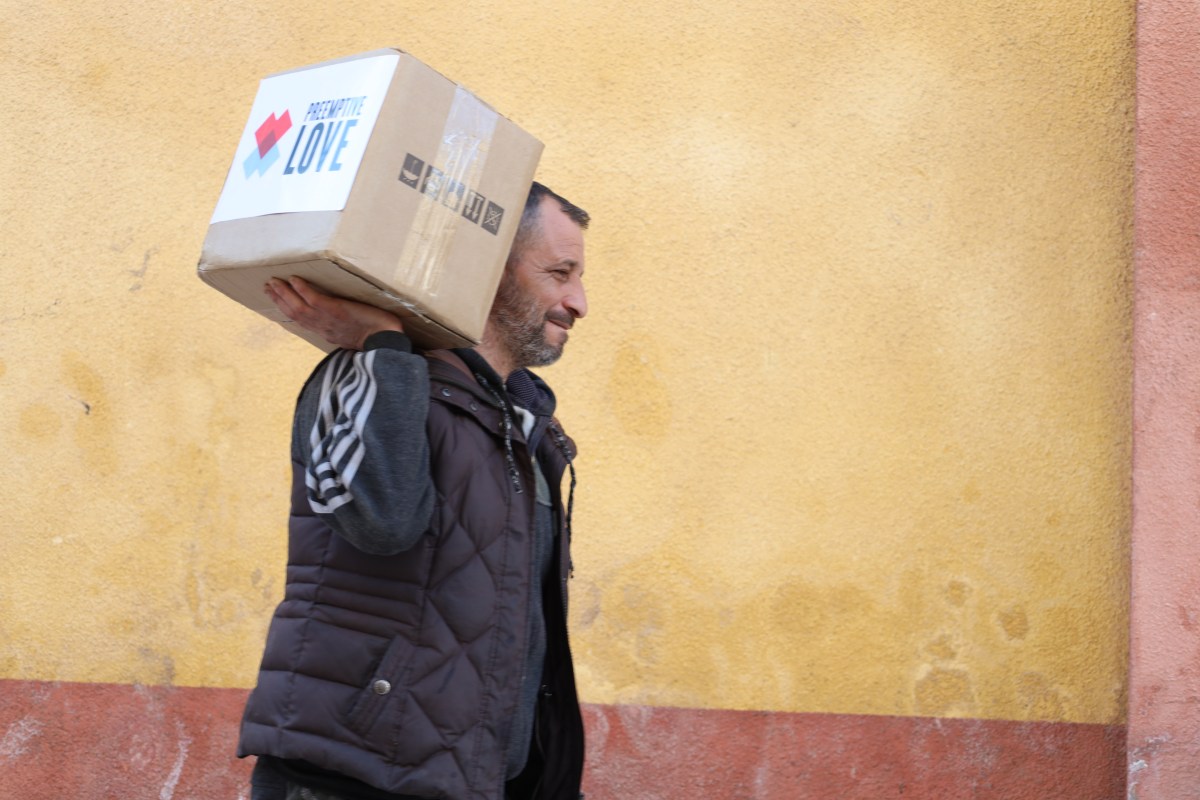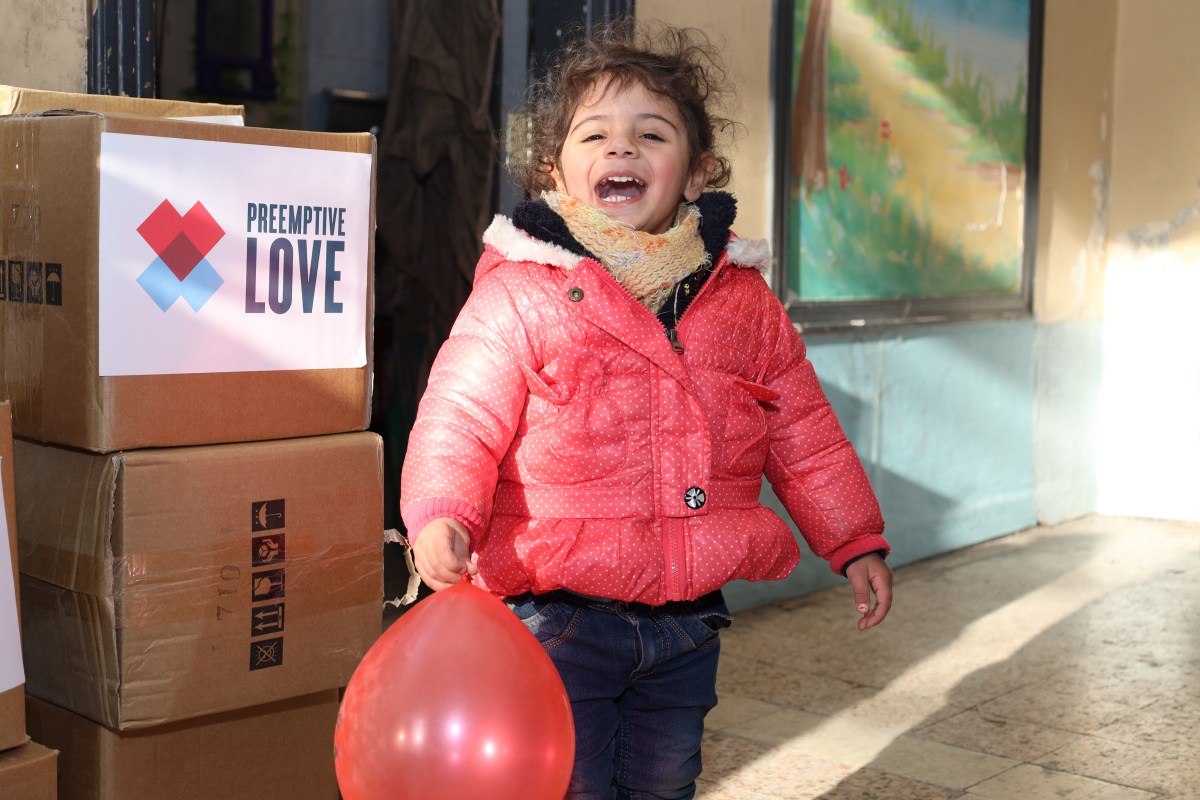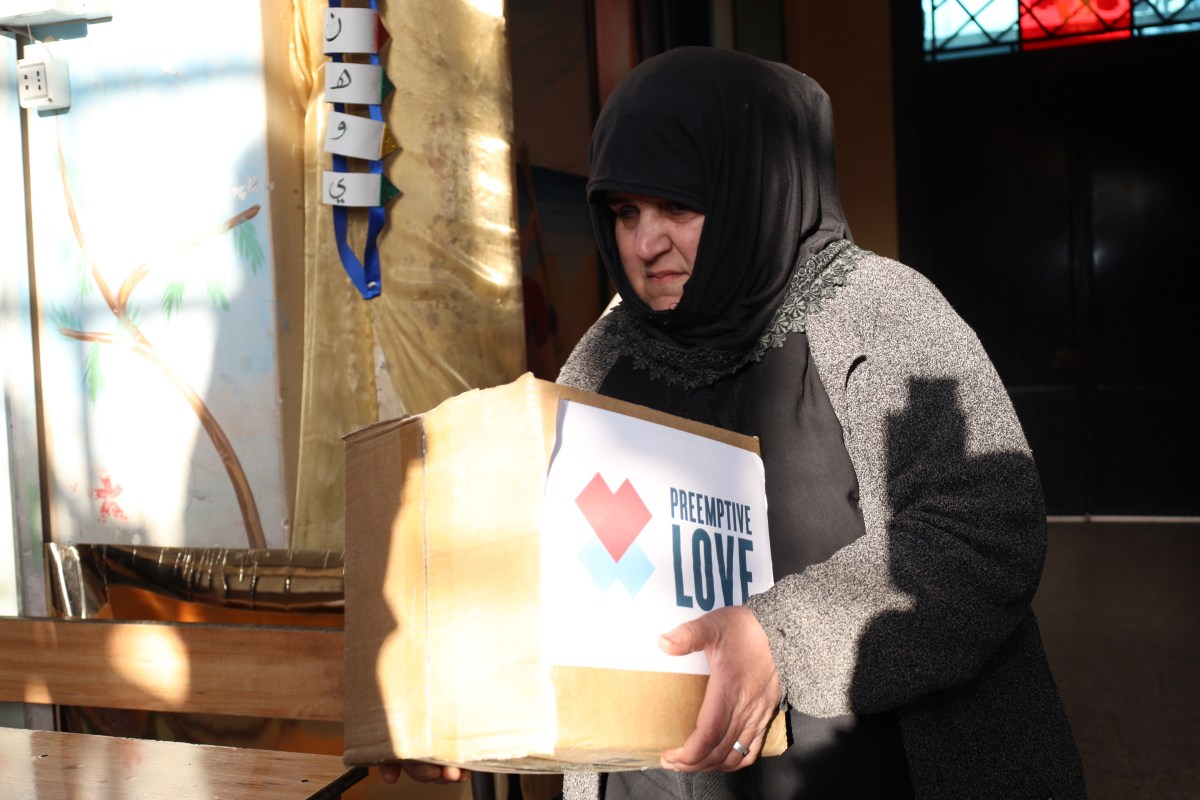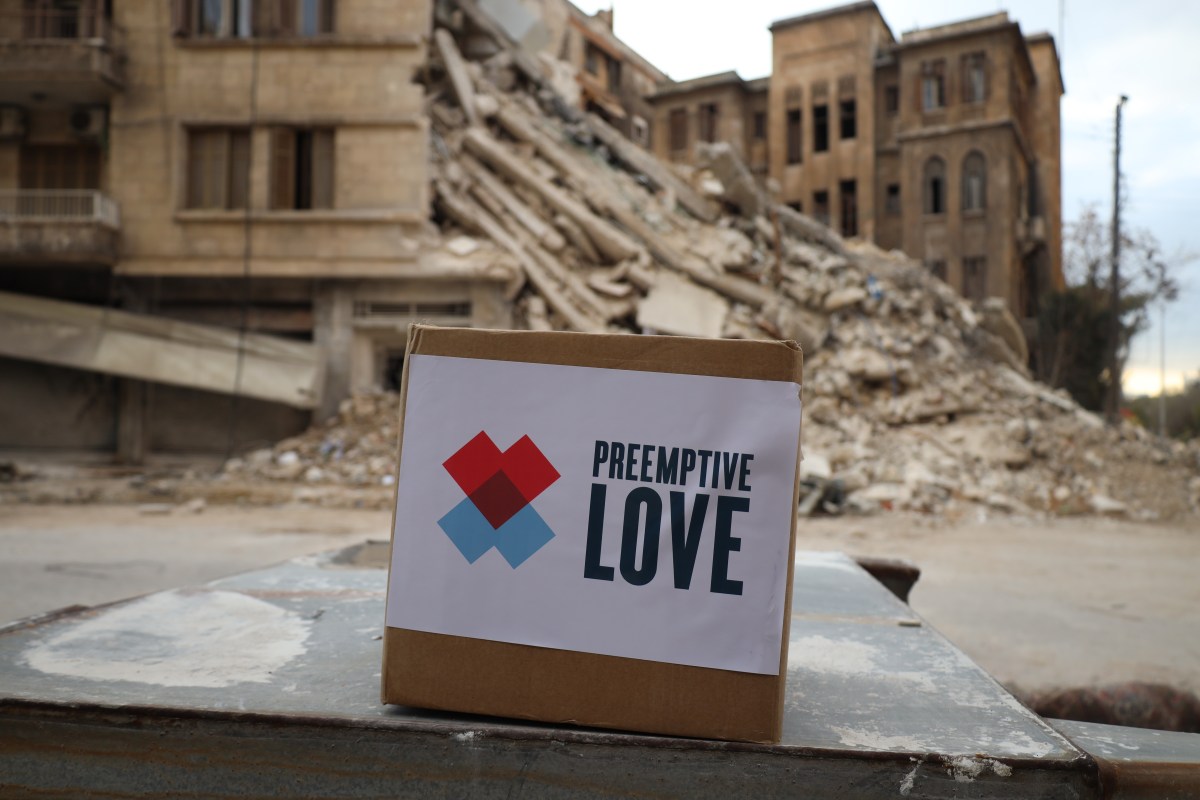Monday’s and Tuesday’s combined triple earthquakes have created a crisis within a crisis for the four million people who rely on humanitarian aid to survive in northwest Syria. Shelling and bombing during the last ten-plus years of civil war have destroyed, damaged, or weakened homes, hospitals, schools, and wells, decimating agriculture and displacing millions of families. Current humanitarian food supplies inside Syria are projected to last for only three to five days. Much-needed humanitarian aid used to come through Turkey to Syria, but the earthquake has knocked out that aid lifeline.
The Syrian government cannot receive direct aid from many countries. Instead, non-governmental organizations (NGOs) bring humanitarian aid into Syria through border crossings with other countries such as Turkey.
We’re on the Ground in Aleppo, Responding
Thanks to our longstanding relationships with our local partners, we were able to start providing humanitarian assistance on Wednesday after making sure our local partners and staff were safe. We are providing life-saving food boxes designed to sustain a family of five for 20 days. These boxes contain familiar essentials such as sugar, lentils, vermicelli, rice, bulger, macaroni, sweet oil, frying oil, tomato molasses, and black tea.
Just $40 will sustain a family of five for almost the next three weeks. Donating $40 buys one food pack.

Food pack delivery in Aleppo. Photo by Nael Iskandarani for Preemptive Love. 
Happy for a food pack! Photo by Nael Iskandarani for Preemptive Love. 
Providing life-saving aid in Aleppo. Photo by Nael Iskandarani for Preemptive Love.
We started with a distribution to 61 families who found room in a shelter. They are lucky because tens of thousands of people are on the streets, burning the remnants of their collapsed homes and other buildings to stay warm. They are too scared to stay indoors as they continue to experience aftershocks.
Sanctions and Humanitarian Aid
The US, the EU, the Arab League, Australia, Canada, and Switzerland increased sanctions against Syria’s government in response to Bashar al-Assad’s violent and repressive treatment of people during the first year of the Syrian civil war. The Syrian government cannot receive direct aid from many countries. Instead, non-governmental organizations (NGOs) bring humanitarian aid into Syria through border crossings with other countries such as Turkey. These border crossings are lifelines for the people living inside Syria.
The United Nations (UN) set up four border crossings to bring humanitarian aid into northwest Syria, but the central government viewed these border crossings as a violation of its sovereignty. Under pressure from Russia and China, the UN reduced the number of border crossings to one: the Bab al-Hawa border crossing in 2014. For the past nine years, all humanitarian aid brought into northwest Syria was assembled and logistically coordinated for distribution in Turkey before it was brought through the Bab al-Hawa crossing into Syria. In the aftermath of the earthquake, Turkey’s infrastructure has been so damaged it can no longer serve as a staging area for aid earmarked for Syria. In addition, the roads leading to the Bab al-Hawa border crossing are so severely damaged that the border crossing, although intact, has been closed.
A Logistical Nightmare
The earthquakes in Turkey have created a crisis within a crisis for Syrians. Before, when a crisis such as a surge in violence, economic collapse, or gas shortages befell Syria, Turkey was a gateway for relief. Functioning and organized, Turkey offered a place for aid to be gathered, transported, and distributed. With the earthquakes’ destruction, that gateway has closed.
Countries used to send aid to Turkey’s Antakya airport, close to the Syrian border, from which it would be brought to the Bab al-Hawa crossing. Another avenue for aid was through Gaziantep to Antakya. The roads between Gaziantep and Antakya and between Antakya and the border crossing have been heavily damaged, as have the Antakya and Hatay airports. Sanctions have caused fuel shortages in Syria, which further hinders sending aid to those in need.
From Destruction Rises Hope
We are grateful that with our partners on the ground in Aleppo and the generosity of our donors around the world, we can stand with those who have lost everything and let them know they are not alone. Never has it been so necessary to love unabashedly, love first, and love anyway.
Help the people of Syria feel seen. Join us in providing food aid to those in need.


